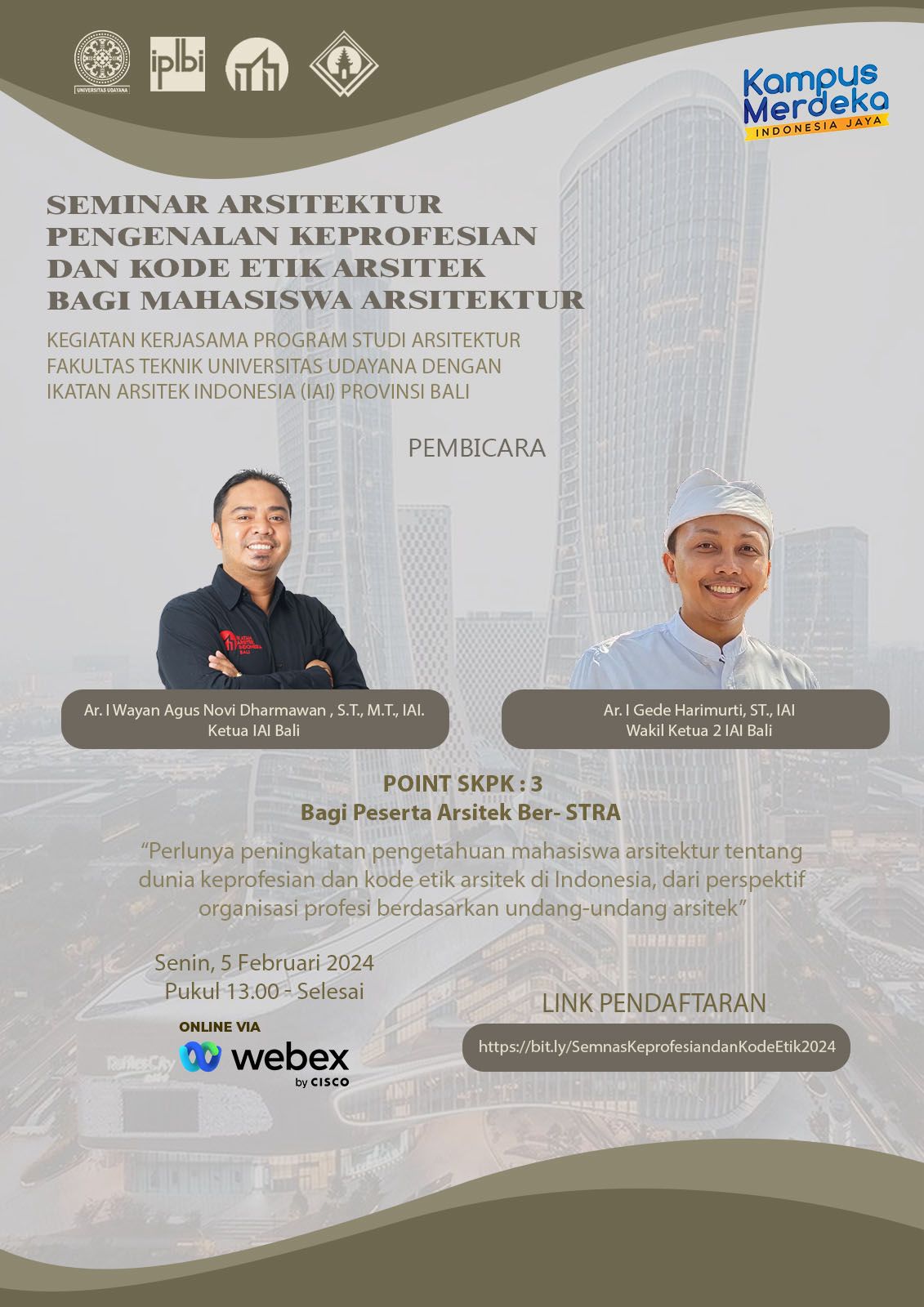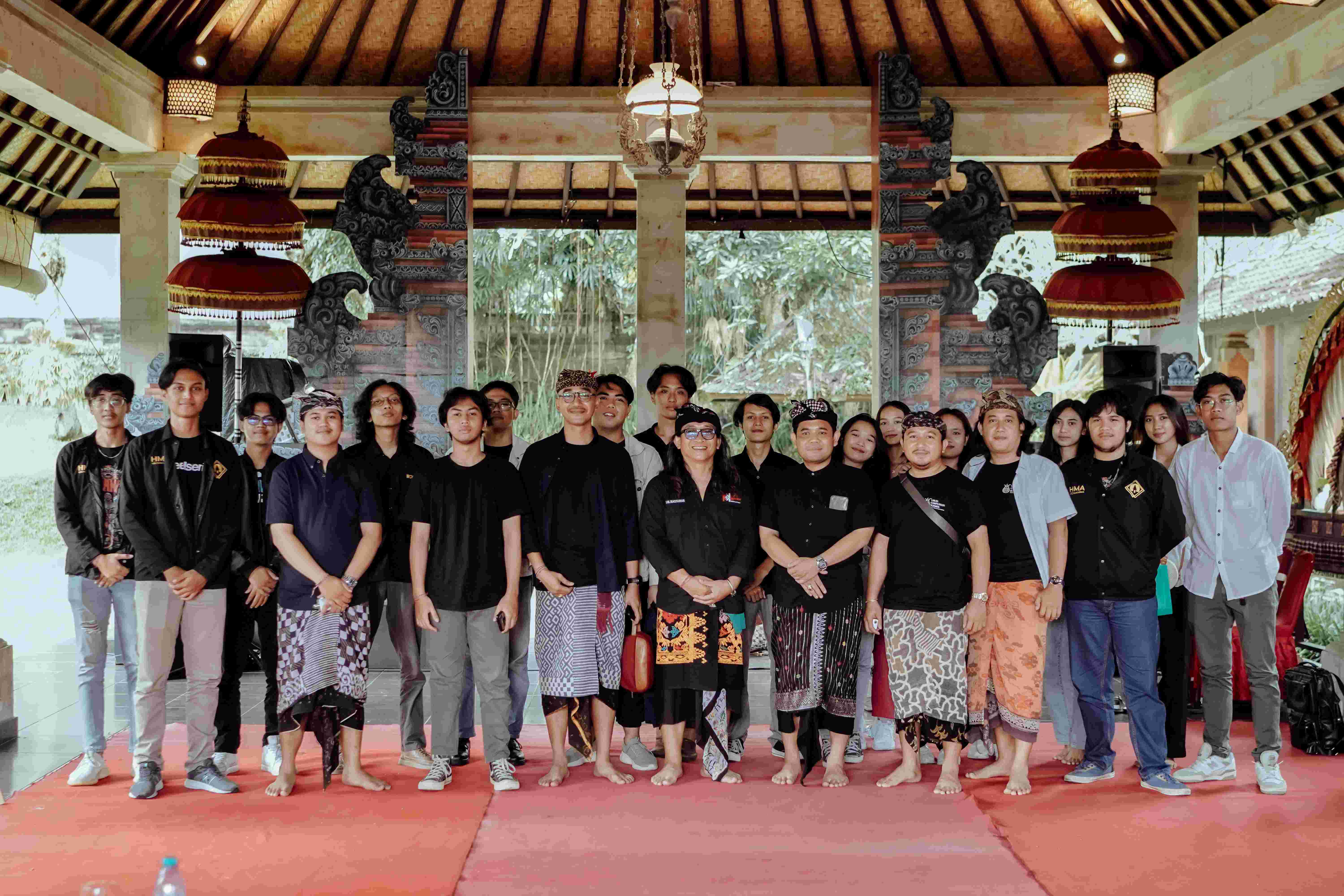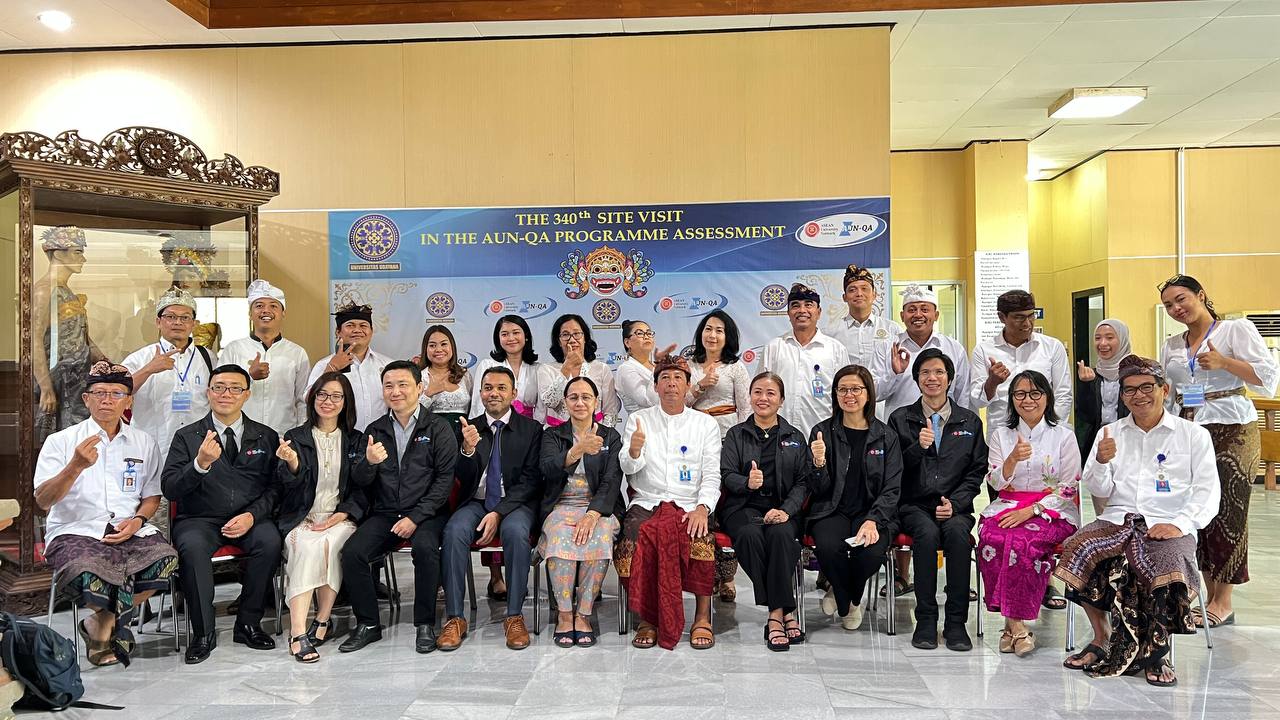Vision and Mission
Vision
Making an educational, research and community service institution that is superior, independent and cultured in the development of architectural science with a focus on ethnic architecture (Balinese architecture) as an implementation of the Basic Scientific Pattern (PIP) of Udayana University's 'culture' and has global competitiveness competence.
Mission
The mission of the study program is the formulation of attitudes, responsibilities, and obligations of the community and is a plan of action taken derived from a vision that has been mutually agreed upon. The mission is integrated steps to be able to realize and achieve the vision of PSSA FT Unud. The PSSA mission can be described as follows:
- Organizing architectural higher education to become a credible, accountable, transparent, fair and responsible institution, as well as creating a conducive academic atmosphere.
- Develop collaboration with all stakeholders (local, national and international) to improve the quality of the learning process and graduates, as well as improve the quality of international programs towards international accreditation (KAAB).
- Developing the Bachelor of Architecture as a center for information and knowledge of ethnic architecture by improving the quality of research and publications in the Bachelor of Architecture community, both on a national and international scale.
- Develop collaboration with various parties in community service activities on both a national and international scale in order to create a built environment that has a local and sustainable identity to help solve existing problems in society.
- Improving and developing the quality of human resources by providing opportunities for the community to undertake further studies, as well as increasing the capacity of educational staff through related training and workshops.
- Producing quality graduates who have high competence in mastering science, technology and art, are able to organize, have sensitivity to social and environmental problems in society and at the same time increase their ability to interact with the wider community.



FACULTY OF ENGINEERING